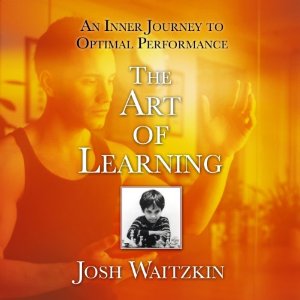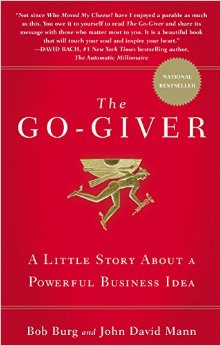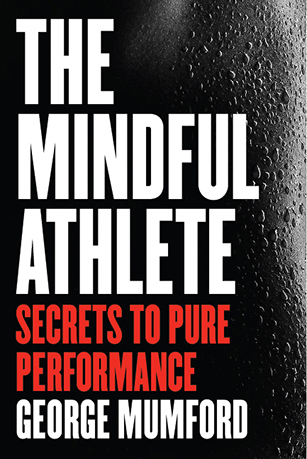This is my review of the fascinating story of Josh’s journey from chess prodigy to push hands world champion. Below are some of the highlights of this wonderful read. A friend gave me this book because it is one of her favorites. You can buy the book on amazon Paper back $11.66 or kindle $11.99.
He was the inspiration for the movie Searching for Bobby Fisher” – Book and Movie
His dedication to learning and studying to be great is amazing. I had no clue about the world of competitive chess including the mentors and coaching necessary to excel.
He was an athletic kid who discovered chess at the age of six and it was almost as if he understood parts of the game intuitively.
Searching for the next bobby fisher. Is a book and movie his dad wrote about him.
He tells many a story about his time spent learning and competing in the world of chess.
He looked back at some moments in chess he called the “Soft Zones” when he became part of the moment. He studied that and has tips and techniques for creating these moments when necessary.
He tells how he dealt with challenges and distractions from music to players kicking him, shaking the board etc. Often he would turn a challenge or distraction into an advantage. Start thinking to the beat of the music, not to react to the kicks by being distracted. Taking a break to go and run sprints or climb stairs to regain focus.
“Mental resilience is arguably the most critical trait of a world-class performer, and it should be nurtured continuously….When uncomfortable, my instinct is not to avoid thediscomfort but to become at peace with it….My instinct is always to seek out challenges as opposed to avoiding them.” p 60
He then talks about his downward spiral in chess competitions.
I took from this a few things:
I like his explanation of playing chess the way that matched his personality and when he didn’t he didn’t play as well. – so he wasn’t working through his strengths.
He notes “pressing for wins in equal positions often results in losing” – you need to really know your circumstances especially after things have changed from one where you were at an advantage and now are not at one. Pressing forward as if you still have an advantage can be costly.
How can you apply this to life and business?
The film Searching for Bobby Fischer came out when he as 16 – and this added fame as a challenge and distraction.
“As a competitor I’ve come to understand that the distance between winning and losing is minute, and, moreover, that there are ways to steal winds from themaw of defeat. All great performers have learned this lesson.” p 63
He talks about being present rather than being stuck in time.
He speaks about two coaches with very different techniques – one nurturing and the other shock and awe of breaking you down.
He mentions reading the books “On the road”, The Dharma Bums and the Tao Te Ching. – “The Tao Te Ching’s windom cnters on releasing obstructions to our natural insight, seeing false constructs for what they are and leaving them behind.”
While competing in chess he He was introducted to Tai Chi and then later Push Hands competitions
And moved on to Martial Arts and eventually winning world championships. Once again the dedicated he has for learning and competing is amazing. He has a drive for challenging himself and getting the most out of himself.
Then chapter on “Investment in Loss” – you need to be challenged enough that you lose and then learn from it to advance.
“Investment in loss is giving yourself ot the learning process”
“…it is essential to have a libverating incremental approach that allows for times when you are not in a peak performance state. We must take responsibility for ourselfes, and not expect the rest of the world to understand what I takes to become the best that we can become.” Great ones are willing to get burned time and agin as they sharpen their swords in the fire.” Michael Jordan making more last minute shots…also missing more
Making smaller circles. Chapter 11 – breaking things down into small steps – be the tortoise who continues prodding along on your goals.
12 Using adversity
3 Critical steps in a resilient performer’s evolving relationship to chaotic situations.
1. “First we have to learn to be at peace with imperfection.” p 126
2. …Learn to use imperfection to our advantage
3. Create ripples in our consciousness…so we are constantly inspired whether or not external conditions are inspiring.:
When it came to competing in martial arts he took a challenge of having a hurt right arm to learn to use his left.
The challenge of dealing wit illegal hits lead him to learn ow to deal wit the fear of being hurt and learning to protect himself which took away the opponents advantage of using the illegal techniques.
He also learned to concede certain moves of holds thus conserving his energy and putting a wrinkle in the opponents plans. – much like his practicing the end game of chess and thus being better when getting to that part of the game.
Chapter Searching for the zone
Starts with this chapter “How can I learn to enter the zone at will, make it a way of life? How can I maintain my focus under pressure, stay serene and principled under fire, overcome distraction? What do I do when my emotions get out of control?”
In this chapter he talks about some techniques he learned when he went to the Human Performance Institute formerly LGE in Orlando, Florida.
He realized he performed better after a relaxation break – so use time between moves to take a break. Quarterbacks and NBA stars also implemented this.
Clear you mind
And also a training technique of cardio vascular interval training – getting his heart rate up to 170 take a minute break to get it down to 144 and then go hard again.
This helped him with his ability to relax and recover between arduous thought processes in a chess game.
Chapter – Building Your Trigger
He gives techniques for dealing with stress and how to create routines to get into the zone. And how to shorten getting into the zone for all of us so we can turn it on and focus when we need to.
Example what is a time when time flies by? Preceding this time add some other enjoyable activities then end with the time you are in the zone.
Then you shorten the time spent doing the preceding events and or use those times before you want to be in the zone/attentive at a meeting for example rather than doing the thing you are naturally in the zone doing.
Meditation – Thought being just practice it and realize you will have thoughts but release them and come back to focus on your breath.
Chapter Making Sandals
Deals with what to do with your feelings and emotions.
Can you do you take those emotions and channel them into a deeper focus?
“Then there are those elite performers who use emotion, observing their moment and then channeling everything into a deeper focus that generates a uniquely flavored creativity.” p 200
He covers thoughts around anger, ego, and fear.
“I had to develop the habit of taking on my technical weaknesses whenever someone pushed my limits instead of falling back into a self-protective indignant pose. Once that adjustment was made, I was free to learn. If someone got into my head, they were doing me a favor, exposing a weakness. They were giving me a valuable opportunity to expand my threshold for turbulence. Dirty players were my best teachers. ” p 206
“The only way to succeed is to acknowledge reality and funnel it, take the nerves and use them. We must be prepared for imperfection. If we rely on having no nerves, on not being thrown off by a big miss, or on the exact replication of a certain mindset, then when the pressure is high enough, or when the pain is to piercing to ignore, ore ideal state will shatter”
On how the Great chess player Garry Kasparov – champion for nearly 20 years dealt with a lack of confidence in an upcoming match
“Garry responded that he would try to play the chess moves that he would have played if he were feeling confident. He would pretend to feel confident, and hopefully trigger the state.”




